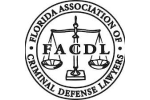to Save Yours
Federal Fraud
When one is faced with a criminal accusation it is invariably one of the worst experiences of their life. When such a criminal allegation alleges a crime of dishonesty, you are dealing with a potential poison pill in terms of possible criminal conviction ramifications. Add to that mix the power and endless resources of the Federal government, and it is imperative that the case is handled correctly and no stone is left unturned. The best way to ensure your Federal fraud case is handled with the greatest care, by the most qualified person, is to hire the right Federal fraud lawyer to help you through this most difficult time. Our firm handles a significant amount of Federal fraud and theft crime allegations throughout Florida and the United States. At this point, there isn’t much we haven’t seen. We are in Federal court often, we know the nuances of the Federal system, and as your attorney we will shield you from the allegations all the while navigating the waters of the criminal process for you.
What is Federal Fraud?
Generally speaking, fraud is committed when an individual knowingly creates or takes part in a scheme to defraud someone by utilizing false or fraudulent representations, promises, or pretenses about a fact that is material and did so with the intent to defraud the other individual. In other words, a person intends to take from another or earn a benefit by lying about something of substance. Depending on the specific allegation, be it wire fraud, bank fraud, or mail fraud, the last element will allege that in committing the fraud an email or computer may have been used in interstate commerce, the mail system was used, or a misrepresentation was made to a bank.
More often than not, fraud cases are punishable by up to ten or twenty years of incarceration, and potential sentence is typically determined primarily by a defendant’s criminal history in relation to where they score under Federal Sentencing Guideline 2B1.1. One the most complex guidelines in the Federal system, 2B1.1 begins with a base offense level of six or seven, depending on the allegations statutory maximum sentence. From there the analysis turns to what is the total intended loss amount or amount of pecuniary harm that a defendant deliberately sought to inflict, regardless of whether that harm would have been possible to inflict. Unfortunately for Federal fraud attorneys defending these cases, this loss amount is not limited to only what the fruits of the criminal labor were, rather it is what was sought. Depending on the amount of intended loss, an increase in offense level will be attributed. Other specific offense characteristics that are considered are the number of victims, if the person made certain misrepresentations as to acting on behalf of certain organizations, if an identification of another was used or if a credit card was created using another person’s personal identification information. This is not an exhaustive list of potential penalty increases, however it is illustrative of many that can be used to enhance a potential sentence.
The teeth of fraud penalties in Federal court lies both in the sentencing guidelines and the various increases in addition to the prospect of piggy backing an aggravated identity theft on top of an underlying allegation of fraud. For instance, if a person defrauds another and in the process uses the internet, they would possibly be charged with wire fraud. Assuming the fraud could be proven, the government can likely prove their case as the element involving the use of a wire is generally the easier of the two elements to prove. If in the process of the wire fraud, the person knowingly possessed, transferred, or used another person’s personal identification information they could be charged with aggravated identity theft in violation of Federal Statute 18 U.S.C. § 1028A(a)(1). If this happens and the person is convicted of aggravated identity theft, they will serve a two-year minimum mandatory prison sentence to run consecutively to any term of incarceration imposed on the underlying wire fraud or other type of fraud.
How Can Federal Fraud Allegations Be Defended?
Generally, fraud charges are best defended in attacking the mental state element of the jury instruction, meaning that the accused did not have the requisite intent to commit a fraud. If a lie or fraudulent information is communicated, in order for a fraud to have been committed, there must be an intent to bilk someone out of money, property, or something else of value. Lying, in and of itself, is not a crime. More is needed. If a representation is made that isn’t true but the communicating party isn’t aware that it isn’t true, the intent element is again not met.
In a scenario where a knowing misrepresentation is made, the other party relies upon it, and something is taken, it still may not be a fraud if the misrepresented fact is not material. A “material fact” is an important fact that a person of a reasonable mind would use in their determination whether to do something. If the fact has a tendency to influence a decision, it will be considered material, regardless of whether the deciding party actually relied on the stated fact.
Finally, and possibly less likely is the scenario where it can be proven that the use of wire or mail, in a wire or mail fraud allegation, is unrelated to the fraud. So, if someone is communicating verbally and in person to someone to commit a fraud and independently sends an email that is not related, no wire fraud has been committed.
Why the Mayberry Law Firm?
Our firm prides itself on a consistent and results driven Federal practice, a significant portion of which is fraud defense. Federal fraud lawyer, Jason Mayberry, knows is familiar with the buttons pushed by the US Attorney’s Office and we know how to handle them. Simply put, we hate to get anything less than the best possible outcome for our clients. Primarily because we care about those we represent, but also because we wouldn’t do this job if we were complacent to simply take what we are offered. Let us work for you and we will give you everything we have in the defense of your case. Contact our office today at 813-444-7435 or fill out a contact form on our webpage for a free analysis of your case.














